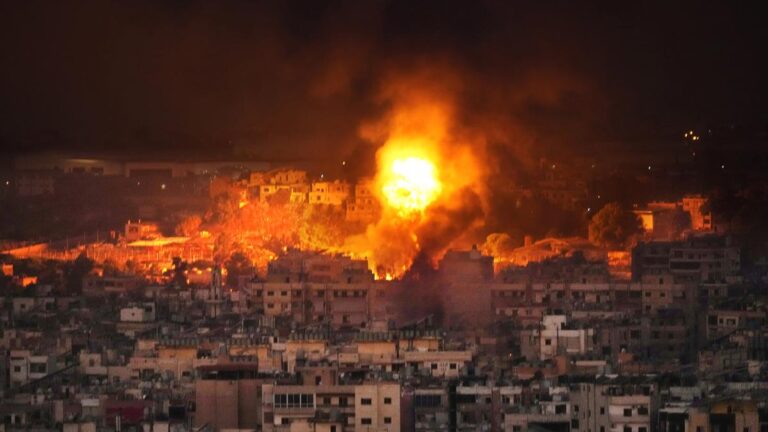NEW DELHI: In a significant escalation of the ongoing Middle East conflict, Hezbollah launched a barrage of rockets into Israel, marking the one-year anniversary of the Hamas attack that triggered the Gaza war. The intensification of hostilities has raised alarm bells across the international community, including India, a major oil importer from the region.
As tensions mount, the Indian government is closely monitoring the situation, given its potential impact on energy security and the large Indian diaspora in the Middle East.
Hezbollah’s Aggressive Stance
On Monday, Hezbollah, the Iran-backed Lebanese militant group, fired dozens of rockets at Haifa, Israel’s third-largest city. The Israeli Defence Forces (IDF) reported that approximately 190 projectiles entered Israeli territory, resulting in at least 12 injuries.
“Tomorrow marks a year since Hezbollah dragged the region into a multi-front war and began their constant attacks on Israeli civilians,” the IDF stated in a social media post.
Israel’s Swift Retaliation
In response to the attacks, Israel conducted extensive airstrikes on Hezbollah targets in southern Lebanon. The IDF also announced the deployment of a fourth division to the region, significantly bolstering its ground presence.
An IDF spokesperson said, “Our ground operations in southern Lebanon are limited, localized, and targeted raids aimed at demolishing Hezbollah’s infrastructure in the border area.”
Regional Implications
The escalating conflict has raised concerns about a potential wider regional war, which could have far-reaching consequences for global oil supplies. India, being the world’s third-largest oil importer, is particularly vulnerable to any disruptions in the Middle East.
Dr. Rajesh Kumar, an expert on Middle East affairs at Jawaharlal Nehru University, commented, “The situation is precarious. Any further escalation could lead to a spike in oil prices, which would have a significant impact on India’s economy.”
Diaspora Concerns
With over 8 million Indians working in various Middle Eastern countries, the Indian government is on high alert. The Ministry of External Affairs has issued advisories for Indian nationals in the region, urging them to exercise caution and stay informed about local developments.
International Response
The United States, Israel’s closest ally, has stated that it believes Israel’s ground operation in Lebanon continues to be limited. However, the international community, including India, is calling for restraint and dialogue to prevent further escalation.
India’s permanent representative to the UN, in a recent statement, emphasized the need for a peaceful resolution, stating, “India calls upon all parties to exercise maximum restraint and take immediate steps to de-escalate the situation.”
As the situation remains fluid, the Indian government continues to monitor developments closely, ready to take necessary measures to ensure the safety of its citizens in the region and to mitigate any potential economic impacts on the country.
(With inputs from agencies)




1 Comment
Pingback: Israel Iran Conflict: History, Analysis, and Implications - Timesbite